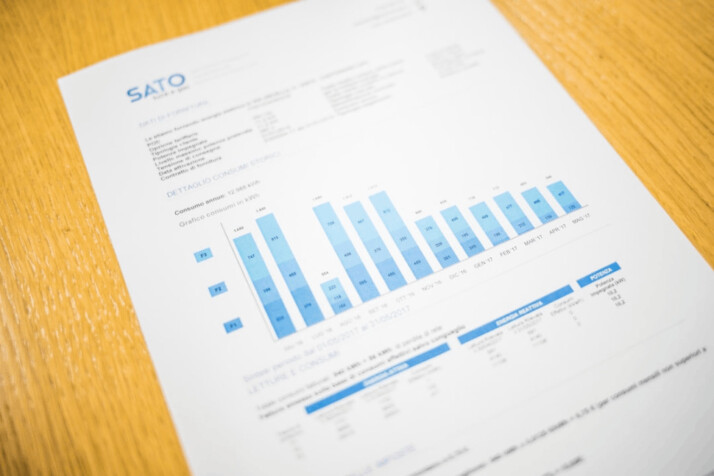Are you an entrepreneur looking to secure financial resources for your business venture? Knowing your finances is essential.
An SBA Personal Financial Statement can help you with that. It provides a thorough overview of all your assets and liabilities. Giving lenders and investors the information they need to decide whether to fund your business endeavor.
This blog will explore how an SBA Personal Financial Statement can benefit you. We’ll also discuss the important components of the template and some tips for completing it accurately and efficiently.
With this knowledge, you’ll be able to approach financing for your business confidently!
What Is an SBA Personal Financial Statement?
A Personal Financial Statement is a document used to provide lenders and investors with information about your current financial situation. It is usually requested when an individual or business entity applies for a loan, line of credit, or financing.
The template includes detailed information regarding all assets (property, investments, etc.) and liabilities (debts) the borrower holds. It also provides space to list monthly income sources and expenses.
The SBA personal statement template is created according to specifications provided by the Small Business Administration (SBA). The completed form will help lenders assess whether you can manage your debts and repay a loan promptly.
Components Included in the Personal Financial Statement
The personal financial statement includes several essential components. These include:
1. Personal Information
This Includes the Name, Address, and Contact Details of the Borrower or Business Entity Requesting the Loan.
2. Assets
This section lists all assets held by the borrower, such as cash, investments in stocks and bonds, real estate properties owned, motor vehicles, etc.
3. Liabilities
This section lists all debts held by the borrower, including credit card balances, loans from banks or other creditors. And also mortgages on real estate properties owned, taxes owed to a government entity, and so on.
4. Income Sources
This section provides an overview of any regular income sources received each month. This includes wages from a job, rental income from real estate properties owned, dividends from investments, etc.
5. Expenses
This Section Includes an Itemized List of Any Monthly Expenses Incurred, Such As Mortgage Payments, Loan Repayments, Utility Bills, Etc.
Tips for Completing the Personal Financial Statement

Completing a personal financial statement accurately is essential to obtaining funding for your business venture. Here are what you should know when completing the form:
- Calm down and make sure all information is entered correctly and completely.
- Gather all relevant documents, such as bank statements, tax returns, and investment records, before you begin.
- Include only current assets and liabilities in the form. Any outdated information should not be included.
- Double check all calculations before submitting the form. Make sure all totals are correct and accurate.
- Answer any questions or address any issues the lender raises promptly and accurately.
SBA Personal Financial Statement Template
Name: _____________________
Date: ____________________
Address: ____________________________
Assets
Cash on hand/in bank accounts: $___________
Stocks and bonds investments: $___________
Real estate properties owned (include the value of each property): $___________
Motor vehicles owned (have the value of each car): $___________
Total Assets: $___________
Liabilities
Credit card balances (list all cards with balances):$___________
Loans from banks or other creditors (list loan amounts owed):$___________
Mortgages on real estate properties owned (list balance of each mortgage):$___________
Taxes owed to a government entity (list amounts):$___________
Total Liabilities: $___________
Income Sources
Wages from the job: $___________
Rental income from real estate properties owned:$___________
Dividends from investments:$___________
Other sources of income (specify what are the other sources):$___________
Total Income Sources: $___________
Expenses
Mortgage payments (list amount paid per month for each mortgage):$___________
Loans repayments (list amount paid per month for each loan):$___________
Utility bills (list estimated monthly expenses):$___________
Other regular monthly expenses (specify what are the other sources): $___________
Total Expenses: $___________
Net Worth:
(Total Assets minus Total Liabilities = Net worth)
Net Worth: $___________
Conclusion
An SBA personal financial statement is essential for anyone seeking financing for their business venture. It provides lenders and investors with detailed insight into a borrower’s current financial situation.
Then make informed decisions on approving a loan request. This increase your chances of receiving funding for your business endeavor!
Explore All Write Personal Statement Articles
How to Draft Meaningful Length of Law School Personal Statement
Are you confused on how to write a law school personal statement? One of the essential elements of your application…
Effective History and International Relations Personal Statement to Try
Are you considering studying history and international relations? Or you may be curious about what a degree in this field…
Guide to Quality Global Management Personal Statement
Are you applying for a global management program and want to stand out from the crowd? A well-written personal statement…
How to Draft Better Examples of Personal Statements for Residency
Achieving a residency can be a massive accomplishment for any aspiring medical professional. To secure your spot in one of…
Tips for Drafting a Free Example of Personal History Statement
A personal history statement can be crucial to many applications, from university admissions to job search processes. This blog will…
Writing Compelling Dietetic Internship Personal Statement
Applying for a dietetic internship is a rigorous process and requires submitting a personal statement, which is an essential part…
